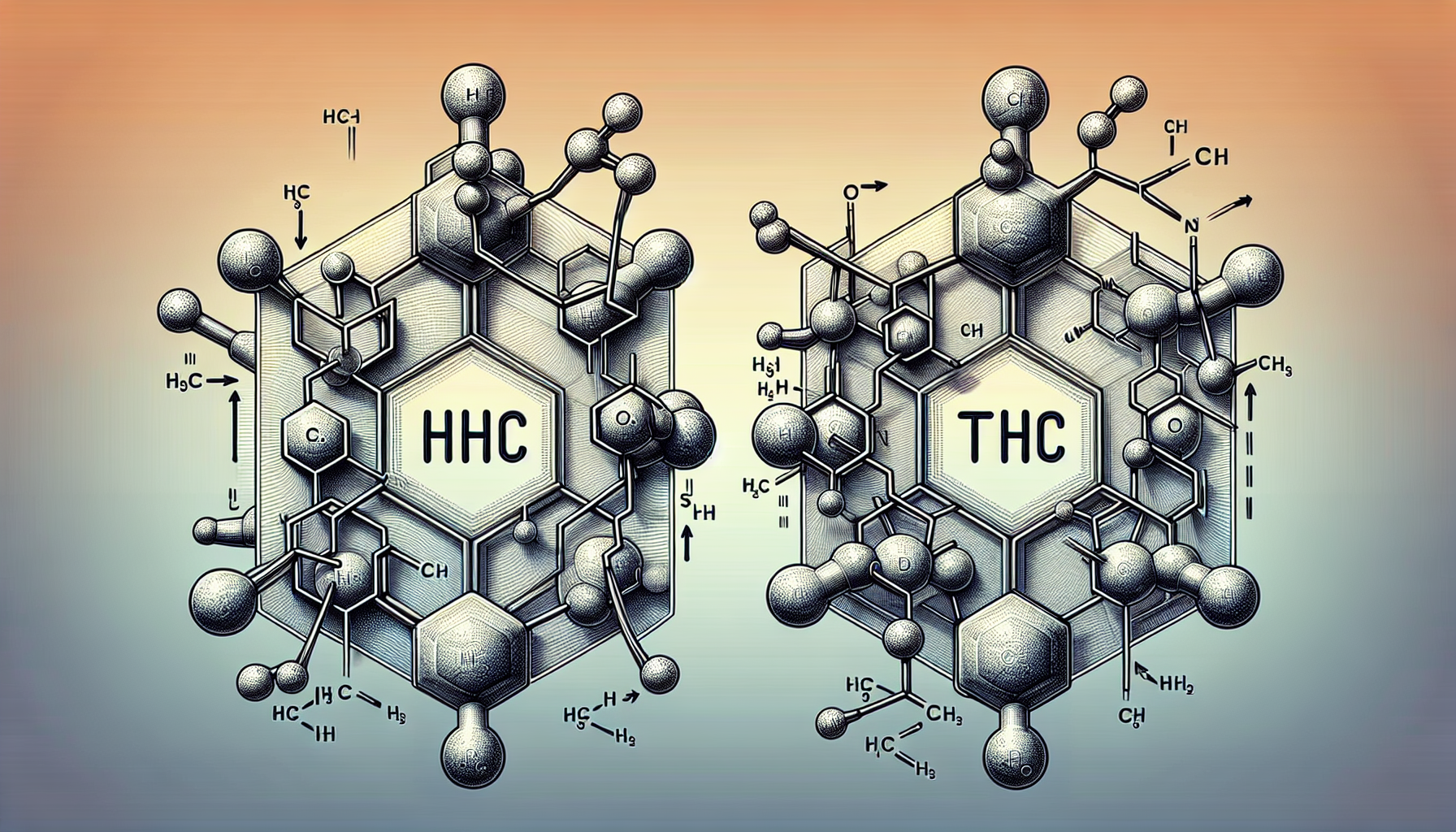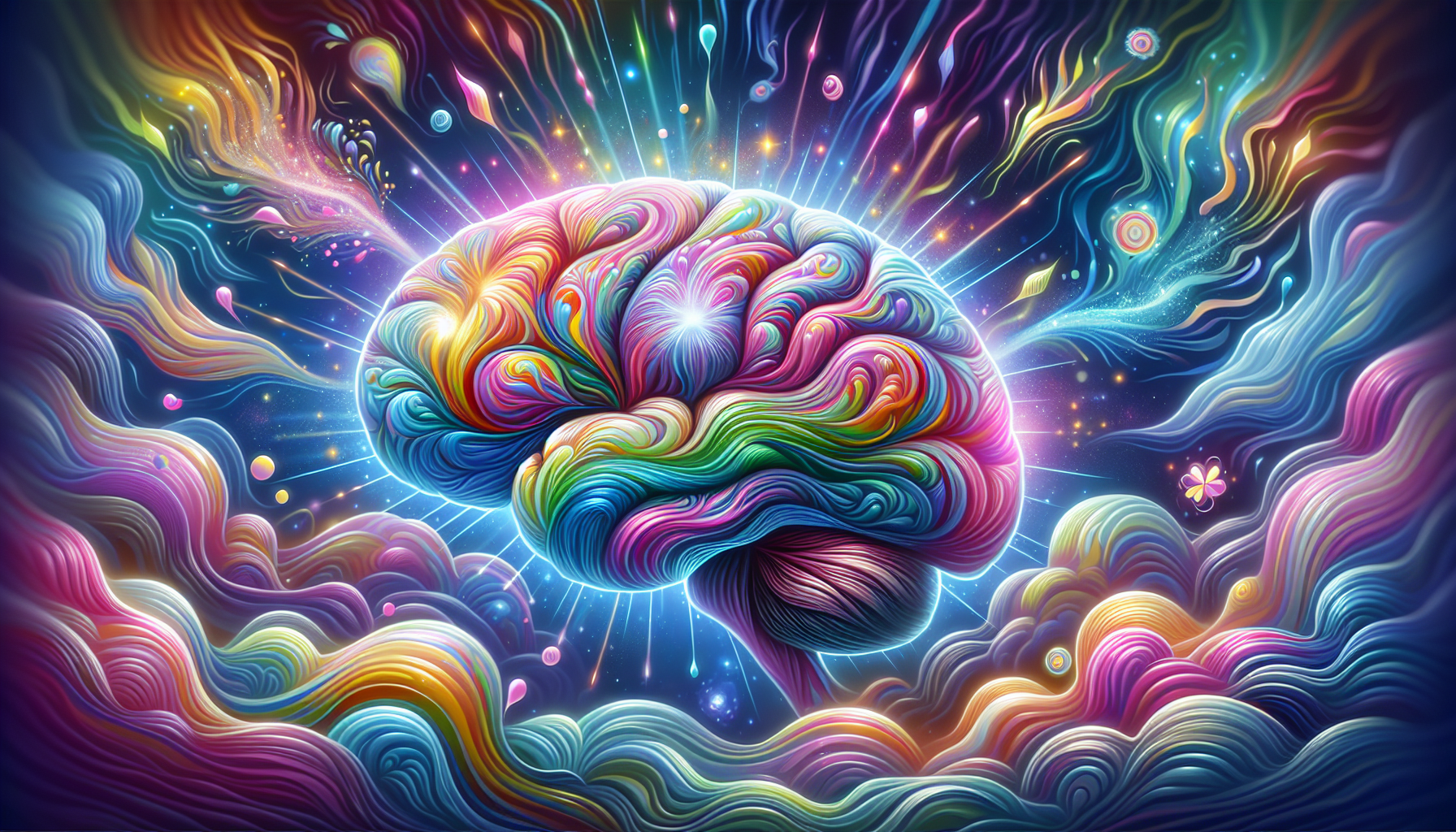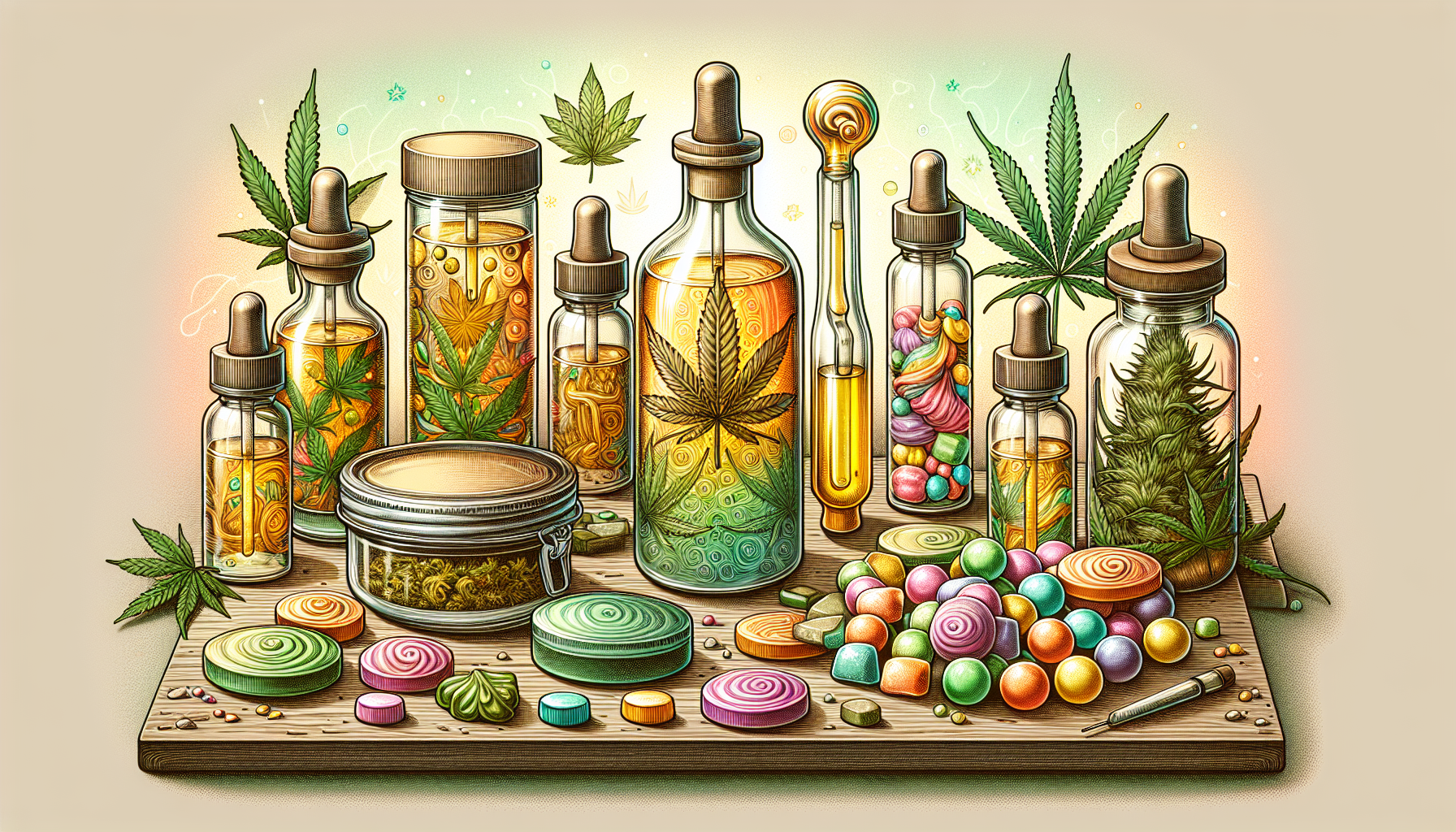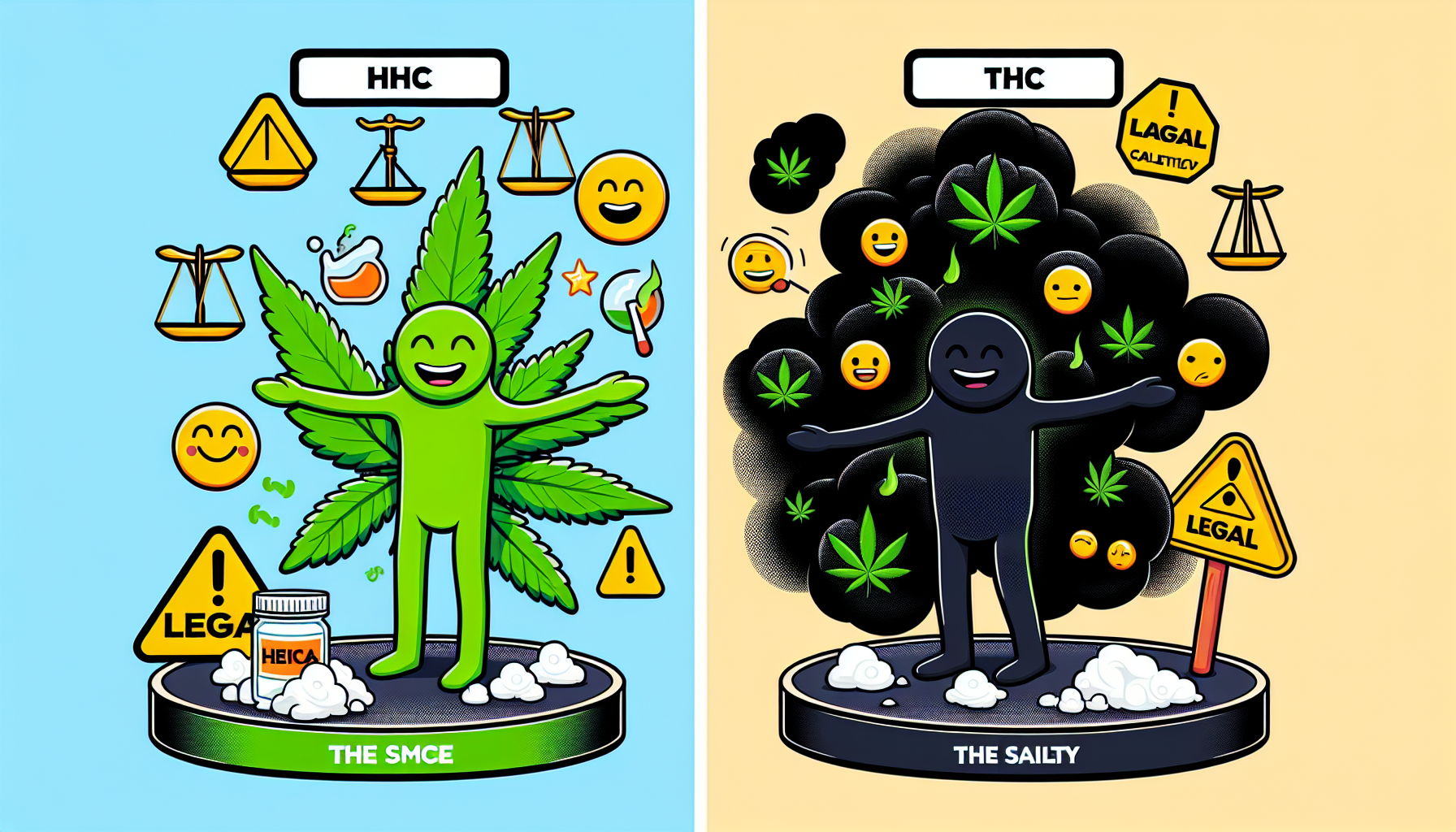HHC THC Difference - Clarity about Cannabinoids
HHC vs THC: What is the difference between HHC and THC? This is a question that many people ask when they want to learn about the world of cannabinoids. In this article, we will look at the key differences between HHC and THC - from the chemical structure to the psychoactive effects to the medical uses and legal aspects, especially the HHC THC difference.
The most important things at a glance
-
HHC and THC differ in their chemical structure and their origin; THC is naturally present in cannabis, while HHC is usually produced synthetically.
-
HHC vs THC: The psychoactive effects of HHC are milder and less long-lasting than those of THC, making HHC a more suitable option for users who want to avoid the more intense effects of THC.
-
The legal status of HHC varies around the world, providing a legal alternative for users in regions where THC is heavily regulated, but there is uncertainty about its detectability in drug tests.
What are HHC and THC?
HHC (hexahydrocannabinol) and THC (tetrahydrocannabinol) are two cannabinoids that are gaining increasing importance in the world of cannabis. HHC is a synthetic cannabinoid produced by hydrogenating THC or CBD, while THC is the most well-known cannabinoid and the main component of the psychoactive effects of cannabis.
Definitions and properties of HHC and THC
HHC is a synthetic cannabinoid produced by hydrogenating THC or CBD. It has a similar structure to THC and is similarly psychoactive, but with lesser psychoactive effects. THC, on the other hand, is the most well-known cannabinoid and the main component of the psychoactive effects of cannabis. It occurs naturally in the cannabis plant and is responsible for the "high" associated with cannabis consumption.
HHC and THC: Chemical Structure and Origin

The chemical structure of HHC and THC differs significantly, even though both are cannabinoids. While THC occurs naturally in the cannabis plant, HHC is mostly produced synthetically or semi-synthetically. The structure of HHC is the saturated form of THC, which is achieved through the hydrogenation process. Hexahydrocannabinol is an interesting compound in this context, especially when considering the differences between THC and HHC.
THC is produced naturally in the trichomes of the cannabis plant through biosynthesis. HHC, on the other hand, only occurs in minimal amounts in nature and is mainly produced in the laboratory to ensure controlled quality. This makes HHC a unique and interesting cannabinoid that is very different from THC in its production.
Historically, HHC was first isolated by Roger Adams in 1940, demonstrating that cannabinoids can be chemically modified. This discovery laid the foundation for the modern research and production of HHC, which is now considered an exciting alternative to THC.
mode of action in the endocannabinoid system
HHC and THC both interact with the receptors of the endocannabinoid system, a complex network of receptors distributed throughout the body. These receptors, particularly the CB1 and CB2 receptors and the cannabinoid receptors, play a crucial role in regulating various physiological processes such as pain, mood, and appetite.
When comparing HHC vs THC, THC has a high affinity for the CB1 receptors in the brain. This leads to the well-known intense psychoactive effects. HHC, on the other hand, binds less strongly to these receptors, resulting in milder psychoactive effects. This different binding ability explains why the high effect of HHC is perceived as less intense.
However, both cannabinoids also show an affinity for the CB2 receptors found primarily in the immune system. These interactions may have anti-inflammatory effects, further highlighting the health benefits of HHC and THC. Current research continues to investigate the complex interactions of these cannabinoids in the endocannabinoid system to understand their full potential.
Psychoactive Effects of HHC and THC

The psychoactive effects of THC are well known and include intense feelings of euphoria and relaxation. These effects are caused by THC's strong binding to the CB1 receptors in the brain, resulting in a broad and intense psychoactive effect.
In comparison, the psychoactive effects of HHC are less potent and shorter lasting. Users often report mild relaxation and stress relief, without the intense euphoric effects of THC. These milder effects make HHC a preferred choice for those seeking the benefits of cannabis without the strong psychoactive effects.
When comparing THC vs HHC, it is clear that HHC is often perceived as less intense and relaxing, while THC has a stronger psychoactive effect. It is important to note that the effects of HHC and THC can vary greatly depending on individual tolerance and the amount consumed. Some users prefer the intense effects of THC, while others appreciate the milder, relaxing effects of HHC.
Medical Applications of HHC and THC

Both HHC and THC have potential medical applications that are currently the subject of intense research. In the context of 'HHC vs', it is important to understand the differences in the effects, legality, side effects, and uses of these two cannabinoids. THC is known for its ability to relieve pain and reduce nausea, making it a commonly used substance in the medical treatment of chronic pain and other ailments.
HHC is also being considered as a possible treatment for various health conditions, although its potential medical applications are not yet fully explored. The anti-inflammatory and analgesic properties of HHC could help patients with chronic pain and inflammatory diseases.
A key benefit of HHC is its ability to provide therapeutic effects without the intense psychoactive effects of THC. This could make HHC a promising option for patients seeking relief from their symptoms but want to avoid the intense psychotropic effects of THC.
Legal Status of HHC and THC
The legal status of HHC and THC varies considerably around the world. While THC is illegal or heavily regulated in many regions, HHC is often in a legal grey area. In Germany, HHC can be legally purchased by people aged 18 and over, while cannabis has been partially legalized as of April 1, 2024. The "HHC vs THC" comparison shows that HHC is often presented as a legal and less intense alternative to THC.
This legal uncertainty surrounding HHC has increased the demand for legal alternatives to THC. International agreements such as the Single Convention of 1961 regulate the trade in cannabis and influence national laws. There is no uniform regulation for cannabis in the European Union, so each member state can enact its own laws.
The different legal regulations make it important for consumers to inform themselves about the current legal situation in their country. This helps to avoid legal consequences and to make informed decisions about the consumption of HHC and THC.
Future prospects in the legal context
The legal landscape surrounding cannabinoids is constantly evolving. Countries around the world are rethinking their laws and regulations regarding cannabis and its derivatives. HHC was designated as a legal THC alternative until June 27, 2024, but since then it has been banned as a THC derivative. The sale, trade and manufacture of HHC and its derivatives will no longer be permitted from that date.
side effects and safety aspects
As with all psychoactive substances, there are potential side effects and safety issues to consider with HHC and THC. When comparing THC vs HHC, it is often pointed out that HHC is perceived as less intense and relaxing, while THC has a stronger psychoactive effect. HHC may cause fewer negative side effects such as anxiety than THC. Users also report that HHC may cause less fatigue than THC.
However, there are also reports of adverse effects such as dizziness and nausea after consumption of HHC, similar to THC. However, the risks of HHC are little researched and the long-term effects remain unknown. Less intense psychoactive effects and potentially fewer side effects are expected with HHC.
It is important to consider individual risks and potential side effects and plan consumption accordingly. An informed decision can help maximize the benefits and minimize the risks.
Forms of consumption: smoking, vapes and gummy bears

HHC is available in a variety of consumption forms, including colorful gummies, electronic vapes, and HHC flowers that can be smoked. This variety offers users different ways to consume the substance and achieve the desired effect. Compared to THC, HHC often offers a less intense effect, making it an interesting alternative. The term "HHC vs THC" is often used to explain the differences in the effects and legal situation of these two cannabinoids.
Each form of consumption has its own advantages and disadvantages:
-
Smoking HHC flowers provides an instant effect.
-
Vapes are more discreet and convenient.
-
Gummies offer a convenient and delicious way to consume vape that may be especially attractive to beginners.
Choosing the right method of consumption depends on personal preferences and the desired effect. It is worth trying out the different options to find the best method for your needs.
Differences in production
The production of HHC is completely different from that of THC. HHC vs THC: HHC is primarily produced through a hydrogenation process that uses hydrogen molecules to convert THC. This process begins with the extraction of THC from the cannabis plant, followed by a chemical conversion.
In contrast, THC is formed naturally in the trichomes of the cannabis plant. HHC is found only in minimal amounts in nature and is therefore produced in laboratories to ensure controlled quality. This synthetic manufacturing process ensures that HHC products are more stable and less susceptible to oxidation.
The differences in manufacturing are also reflected in the properties and stability of the products. The difference in synthetic production of HHC allows for higher purity and consistency, which can be an important factor for many users.
manufacturing processes of THC and HHC
THC is produced in cannabis through cannabinoid biosynthesis in the trichomes. HHC, on the other hand, is not synthesized in the plant but is produced during the maturation of the buds through the breakdown of THC. HHC can also be produced synthetically or semi-synthetically. The production process of HHC is more complex than that of THC and requires special equipment and knowledge.
HHC as a legal alternative to THC

HHC is often viewed as a legal alternative to THC and exists in a legal grey area. This uncertainty makes HHC attractive to many consumers who are looking for a natural method of relaxation without violating legal regulations. The "HHC vs THC" comparison shows that HHC is often presented as a less intense and legally safer alternative to THC.
Another benefit of HHC is its stability and durability, making it a practical choice for long-term storage and use. These properties make HHC a preferred option for many users who want to enjoy the benefits of cannabinoids without the risks and legal issues of THC.
HHC offers a mild psychoactive effect that helps many people relax and de-stress without the intense effects of THC. This makes it an attractive alternative for those seeking the positive effects of cannabis but want to avoid the strong psychoactive effects.
influence on drug tests
An important consideration for many users is the impact of HHC on drug tests. When comparing "HHC vs THC", it is clear that HHC can test positive on drug tests due to its structural similarity to THC. This is because most drug tests are designed to detect THC and its metabolites.
HHC can be detectable in urine for up to three months, depending on consumption patterns and individual factors. Therefore, it is recommended to avoid HHC for at least four weeks before a drug test to avoid possible positive results.
If consumers are concerned about HHC and drug testing, they should consult a qualified physician or professional for more detailed information and individualized advice.
Summary
Overall, HHC and THC offer fascinating insights into the world of cannabinoids. The HHC vs THC comparison highlights the differences between these two substances. Both have unique chemical structures and origins that influence how they work and their effects in the human body. While THC is known for its intense psychoactive effects, HHC offers a milder alternative that many users prefer.
The medical applications of both cannabinoids are promising, with HHC potentially offering anti-inflammatory and pain-relieving effects without the strong psychoactive effects of THC. The legal status of HHC and THC varies around the world, making it important for consumers to educate themselves on the current laws in their country.
Side effects and safety are also important considerations, with HHC potentially causing fewer negative effects than THC. The different ways of consuming HHC provide users with flexible options that best suit their needs.
In conclusion, HHC is an interesting legal alternative to THC that offers many of the positive effects of cannabinoids without the strong psychoactive effects. It remains exciting to see how research and the legal framework for HHC and THC will develop in the future.
Frequently Asked Questions
What is the main difference between HHC and THC?
HHC vs THC: The main difference between HHC and THC is their chemical structure and origin; THC is a natural cannabinoid from the cannabis plant, while HHC is synthetically produced and is a saturated form of THC.
How do HHC and THC work in the human body?
HHC and THC work in the human body by interacting with the receptors of the endocannabinoid system, with THC binding strongly to the CB1 receptors in the brain and producing intense psychoactive effects, while HHC has a milder effect.
What are the medical uses of HHC and THC?
THC is often used to relieve pain and nausea, while HHC has potential anti-inflammatory and analgesic properties, although these require further research.
Is HHC legal?
HHC is often legally controversial and may be legally available in certain regions, while THC is illegal or heavily regulated in many areas. It is advisable to research the specific laws where you live.
Can consuming HHC lead to a positive drug test?
Yes, consumption of HHC can lead to a positive drug test because it has structural similarities to THC and common tests target THC and its metabolites.

Share:
Kratom: Legal High or Underestimated Risk?
Cannabidiol Shop: Buy Premium CBD Products Online